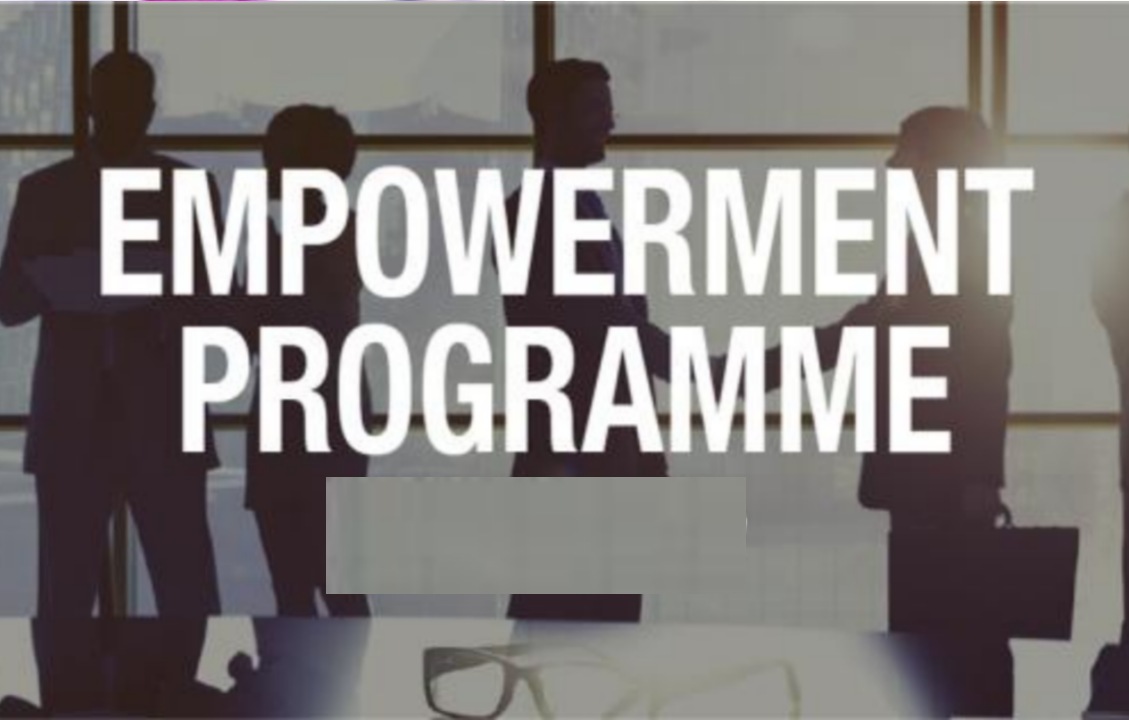NIGER DELTANS AND EMPOWERMENT INITIATIVE: A Need to Look Beyond Financial Gains By Abai Francis

Majiro (not real names) has just completed an online registration for the latest empowerment programme initiative for the Niger Delta, announced by one of the federal government agencies to equip youths in the region with entrepreneurial skill-sets in preferred areas of interest. However, this is the fourth empowerment programme, if successful, that Majiro would have enrolled and participated in. Yet, the beneficiary is still not empowered but remains jobless.
In this piece, Abai Francis, the Brand Director of PENGlobal writes on the government-sponsored empowerment initiative in the Niger Delta region, examining why most of the empowerment schemes failed to achieve their objectives, becoming a source of waste of resources (time and money) and channels of embezzlement; and also the need for the youths to look beyond financial benefits that is the motivation for most applicants applying to such schemes. Excerpts:
One of the misconceptions that has become ill-thought in the modern Nigerian setting is that government must provide jobs for citizens of working age. However, this mental disposition is gradually shifting with the dawn of an age experiencing population boom, a situation that has created a scenario where job demand far outstrips job supply, raising more awareness that the private sector has a role to play in job creation.
The government, aware of its limit to provide jobs for every citizen and also of its responsibility to citizens' welfare, and driven by an economic strategy (that is centered on the ideology that the more jobs created, the more revenues it will earn through taxes) has propelled it to create opportunities through empowerment programmes for citizens to be useful to themselves and the state at large. It is also expected that the more youths are equipped with entrepreneurial skills, the lesser the rate of crime in society and other challenges brought about by the hydra-headed monster known as unemployment.
One of such empowerment initiatives is the federal government-backed Niger Delta Development Commission, NDDC, whose recently announced empowerment programmes is aimed at empowering 10,000 beneficiaries in the first phase, who would also be paid a stipend of N50,000k for a period of 12 months they will be undergoing training.
However, despite government's good intentions, the implementation of such empowerment programmes has been fraught with irregularities that are corruption-driven. Firstly, the process of recruitment of applicants into such schemes seems to lack transparency as those who pull the strings flood it with their choice candidates, thereby depriving and narrowing down opportunities for those applicants who do not have any supposed connections to an influential leader or a godfather. The implication of this this is that most of these beneficiaries are not purpose-driven.
Secondly, it would shock you to know that the implementers of empowerment programmes most often have a backdoor agreement with executors (trainers) of the programme, for a sort of kickback (bribe) to be returned as fee for their mobilization. Thus, the initiative which is supposed to benefit the poor becomes an avenue for organisers to enrich their pockets. Moreover, this results in a lesser monitoring of the execution stage thereby defeating its purpose even at kick-off stage.
Thirdly, the problem of follow-up after training of applicants has always been on paper. Majority of the empowerment schemes that have been undertaken so far end up as soon as the period of training the beneficiaries comes to a close. This creates a situation of no feedback by way of monitoring beneficiaries to ensure they put into practice the skills gained, a situation that leads to waste of resources.
But the rot of deficiency do not end with the organisers or executioners as the ideologies of applicants or beneficiaries themselves have also contributed to the failure of most empowerment schemes. One of the most glaring outcomes is where beneficiaries trade off their starter packs to interested buyers at the end of their empowerment programme. Majiro, as mentioned on the onset of this piece, is just one out of many beneficiaries of empowerment initiatives whose job has become one of waiting for the next empowerment schemes so as to cash-out!
Most youths, in their quests to get rich quick, have become lazy and unwilling to tread down the narrow path of entrepreneurship that leads to success. Even with their academic certificates they cannot muster courage to take the bull by the horn. Meanwhile, these same set of youths are always the first ones to point accusing fingers against the government and to blame everyone but themselves for the hardship and lack of jobs experienced in the country.
As the President Bola Ahmed Tinubu-led federal government churns out economic policies of his administration that offer opportunities to the Niger Delta youths for skill acquisition through the Niger Delta Development Commission, NDDC, among other initiatives, the youths should look beyond the financial gains such opportunities offer them. Instead, the youths should focus on how they too can become a source of empowerment to others by wholeheartedly embracing the NDDC programme with a mindset devoid of pecuniary gains. In other words, they should be willing to transform themselves through the NDDC empowerment initiative to become truly independent in the long-run.
On the part of the government, the area of implementation of its empowerment initiatives should be transparent for all parties involved. By this, the most qualified trainers should be engaged for the job without undue favour and influence from certain quarters. Every loophole that will be exploited by greedy merchants should also be blocked and follow-up actions should be clearly spelled out to participants or beneficiaries. This is very crucial in order to decimate the erroneous notion that "anything from government is free and unaccountable!"
If the Niger Delta region must move forward and become an industrial hub, Niger Deltans need to move away from a consuming and over-dependent mentality by tapping into opportunities for the enhancement of the skills needed to bring about the transformation of the region. The youths should therefore tap into this golden opportunity, shun engaging in wasteful ventures and chart ahead with a new revolutionary vision for a prosperous region.
#penglobaldiscourse #NigerDelta #empowerment



